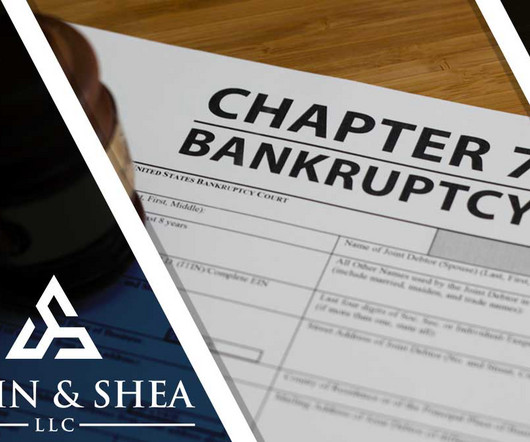Who Can Declare Chapter 7 Bankruptcy?
Sawin & Shea
JANUARY 18, 2023
Filing Chapter 7 bankruptcy provides you with an automatic stay that prohibits creditors from being able to take any action to collect a debt against you, such as repossessions, wage garnishment, and legal action. Additionally, your creditors will not be allowed to contact you.












Let's personalize your content